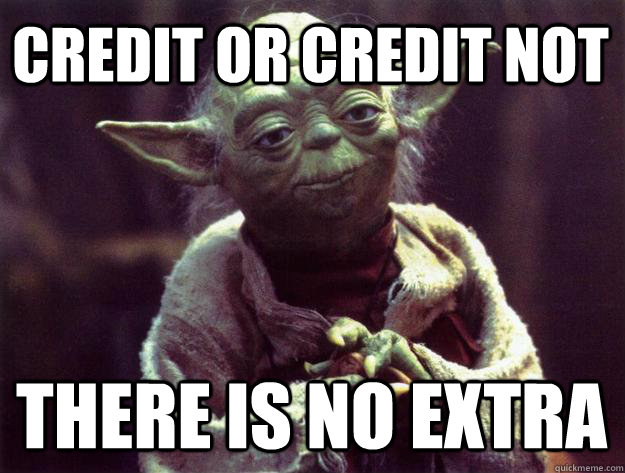
I learned this from Robin Hobb, though I'm pretty sure she didn't realize that she was teaching it to me at the time: there is no extra credit in science fiction.
By which I mean, one of the things that I do, that other writers do, that people in various other fields probably do too (though I don't have direct experience of that) is that we make extra work for ourselves because of... I don't know, acculturation probably that if we JUST WORK HARDER and are teacher's pets and volunteer for extra labor that somehow we'll get better outcomes. This is superstition, really--because publishing is an enormously unpredictable and random business where quality is not always rewarded, and a lot of things can go wrong. And like anybody who makes their living off a capricious and dangerous environment (actors, fishermen) writers are prone to superstitions as a means of expressing agency in situations where we're honestly pretty helpless. (Nobody controls the hive-mind of the readership. Oh, if only we did.)
Now, by extra credit, please note that I don't mean the things that I consider part of baseline professionalism in a writer: turning in a manuscript that is as clean and artistically accomplished as possible, as expediently as possible, and working with your editor to polish and promote the resulting book. What I mean is raising those bars to unsupportable levels, such as: "I will turn in a completely clean manuscript so that the copyeditor has nothing to do!" and "I have a series of simple edits here, which I will resolve be rewriting the entire book, because then my editor will be more impressed with me."
Spoiler: The copyeditor will have stuff to do, because part of her job is making sure that if you break house style you're doing it on purpose. Also, your editor will probably be a little nonplussed, and possibly sneak a pull out of the bottle of Scotch in her bottom drawer, because you've just made a lot more work for her.
Other manifestations include: "I must write forty guest blog posts today!" and "I must write at least twenty pages every single day to validate my carbon footprint!"
(That latter one is the one I tend to fall prey to, for the record.)
I see it a lot among women writers especially, probably because we feel like we constantly have to validate our right to be in a space that is only intermittently welcoming, but it's certainly not a gender-specific problem.
And the thing is... it just isn't so. You don't have to do a pile of extra credit work. It doesn't help, and might in fact be detrimental--to your health, your sanity, and eventually your career. It's possible to out-produce your readership's appetite; it's possible to out-produce the publishing slots available to you; it's possible to fuss yourself so much over tiny details that don't actually matter that you add years to your production schedule and die broke in a gutter, or talk yourself out of finishing the book entirely.
They're never perfect. They're just as good as you can get them, in the limited time available, and then they're done and you learned something and the next one can be better, you hope.
And nobody's going to bump your 4.0 up to a 4.2 because you did a bunch of homework you didn't actually need to do to get the finished product as good as possible, and also out the door.
